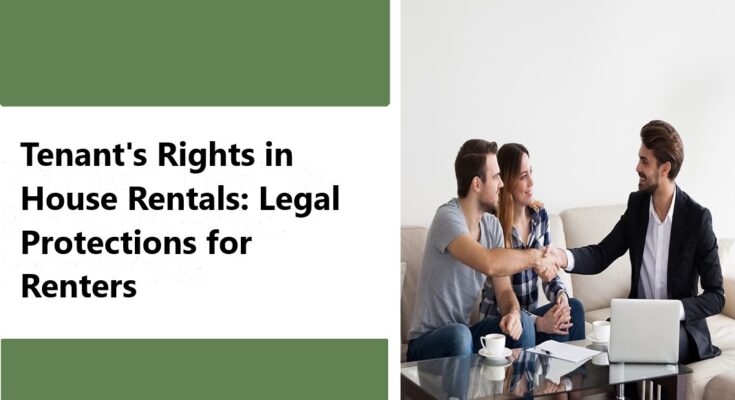Looking at houses for rent can be an exciting chapter in your life, offering the flexibility and convenience of a temporary home. However, it’s essential to understand your rights as a tenant to ensure a fair and lawful renting experience. In this guide, we’ll explore the legal protections and rights that renters have when renting a house.
The Right to Fair Housing
One of the fundamental rights of tenants is the right to fair housing. This means that landlords cannot discriminate against tenants based on factors such as race, color, religion, national origin, sex, familial status, or disability. Fair housing laws ensure that everyone has an equal opportunity to rent housing without facing discrimination.
When searching for houses for rent, it’s crucial to know that you cannot be denied housing or treated differently based on any of these protected characteristics. If you believe you have experienced discrimination, you can file a complaint with the appropriate fair housing agency.
The Right to a Habitable Home
As a tenant, you have the right to live in a safe and habitable home. Landlords are responsible for maintaining the property to ensure it meets certain health and safety standards. This includes:
1. Safe and Secure Premises: Landlords must provide a secure and safe environment. This includes functioning locks on doors and windows, as well as adequate lighting.
2. Adequate Repairs: If something in the rental property needs repair, landlords are generally responsible for addressing it promptly. This includes plumbing, heating, electrical systems, and structural issues.
3. Water and Heat: Landlords must provide tenants with a reliable source of hot and cold water, as well as adequate heating during the colder months.
4. No Hazardous Conditions: Rental properties must be free of hazardous conditions, such as lead-based paint hazards, mold infestations, or other environmental hazards.
5. Working Smoke and Carbon Monoxide Detectors: Landlords are typically required to provide and maintain working smoke detectors and carbon monoxide detectors.
If your rental property does not meet these basic standards, you have the right to request repairs or report violations to the appropriate local authorities.
The Right to Privacy
Tenants also have the right to privacy in their rental homes. Landlords cannot enter the property without proper notice, except in emergencies. In most cases, landlords must provide at least 24 hours’ notice before entering the rental unit for non-emergency reasons, such as repairs or inspections.
Your privacy rights protect you from unwarranted intrusions into your personal space, ensuring that you can enjoy your rented home without undue interference.
The Right to a Lease Agreement
A lease agreement is a legally binding contract between a landlord and a tenant. It outlines the terms and conditions of the rental arrangement, including the rent amount, lease duration, and responsibilities of both parties.
Tenants have the right to a clear and enforceable lease agreement. It’s essential to read and understand the lease before signing it and to keep a copy for your records. If a landlord fails to provide a written lease, you may have rights under state or local laws to ensure a formal rental agreement is in place.
The Right to a Return of the Security Deposit
When renting a house, landlords often require tenants to pay a security deposit. This deposit is meant to cover any unpaid rent or damage to the property beyond normal wear and tear. Tenants have the right to receive a refund of their security deposit, minus any legitimate deductions, when they move out.
Landlords must provide an itemized list of deductions, along with any remaining portion of the security deposit, within a specified timeframe as required by state law. If a landlord withholds an unreasonable amount of the deposit or fails to provide a proper explanation, tenants may have the right to take legal action to recover their deposit.
The Right to Fair Eviction Procedures
While landlords have the right to evict tenants for valid reasons, they must follow legal eviction procedures. Common reasons for eviction include non-payment of rent, violation of lease terms, or the need to reclaim the property for personal use or major renovations.
Tenants have the right to receive proper notice of eviction, typically a written notice specifying the reason and a reasonable timeframe to vacate the property. If you believe an eviction is unjust or unlawful, you may have the right to challenge it in court.
The Right to Report Violations
If you believe your rights as a tenant are being violated, it’s essential to know that you have the right to report such violations. You can contact local housing authorities, tenants’ rights organizations, or legal aid services to seek assistance and guidance.
Understanding your rights as a tenant is crucial to maintaining a fair and lawful renting experience. It’s advisable to familiarize yourself with your state and local laws, as they may provide additional protections and regulations specific to your area. By being aware of your rights, you can ensure that you are treated fairly and responsibly by landlords and property managers.



